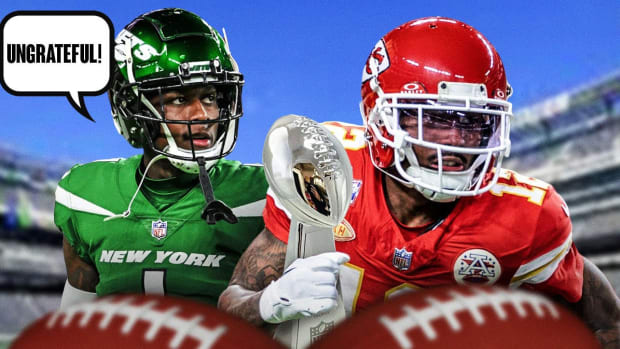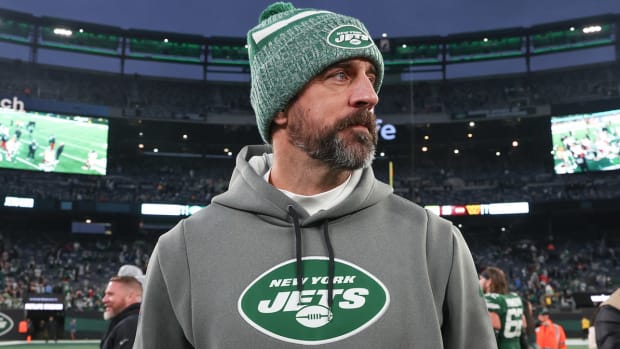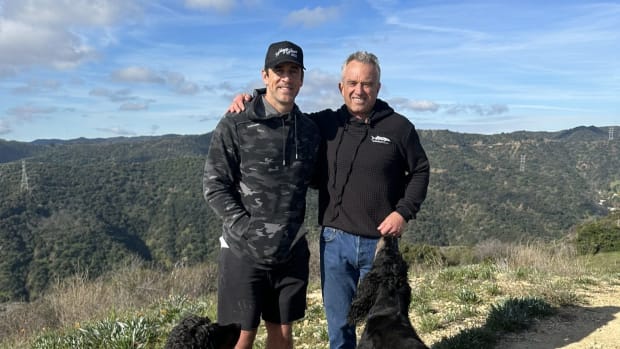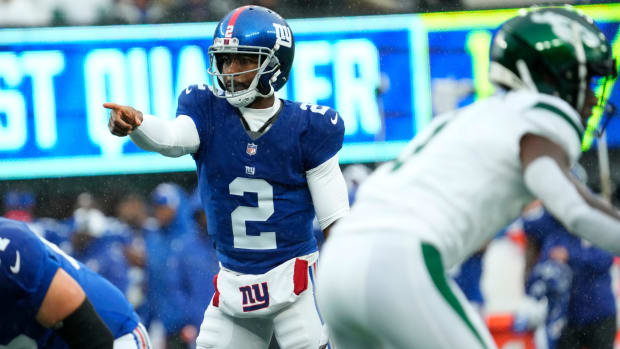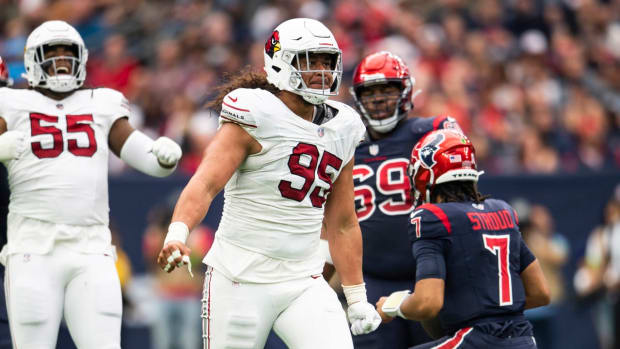With Jamal Adams, New York Jets GM Joe Douglas now faces a Herschel Walker moment
It comes with the territory for Joe Douglas, the New York Jets general manager who is in his first full offseason with the organization. He now faces the most crucial decision to date during his tenure in leading the Jets, a decision that could well set the course for the team for the next decade.
A decision as well, that might determine the fate of his job. This might be his Herschel Walker moment.
Thursday’s news by revered NFL columnist Gary Myers shouldn’t necessarily be a surprise. In his reporting, Myers said that negotiations between Adams, the Jets All-Pro safety, and the organization had broken down and things could be trending towards a trade. Even as general manager Joe Douglas talked at the NFL Combine in late February about long-term deals and making Adams a Jets player for life, the gulf between the two sides might be too great.
And it likely has everything to do with how Douglas values building a team. This offseason, his first full one since being hired last June, Douglas defied conventional wisdom that the Jets needed to sign marquee (and pricey) players. Instead, he looked at the second-tier players showing upswing and potential, building his free agency class that way. He went to the TJ Maxx of NFL free agency, and found some brand names at bargain basement prices. He might have even used a coupon or two in the process.
So the idea of signing Adams to a deal that would make him the highest paid safety in the NFL is likely to run counter to how Douglas would want to operate things. It doesn’t mean that Adams can’t and won’t get that contract from the Jets. It just means that simply, investing top dollar in a safety might run counter to how the Jets braintrust wants to rebuild this team.
And before going any further, it should be said that Adams is worth every penny of being made the top paid safety in the game. It just might be though that the Jets don’t value that investment right here and right now, especially if they feel that a big contract on a safety might hamper their ability to upgrade the rest of the roster.
Even if that safety is as dominant as Adams was last season. Make no mistake about it, Adams was that good.
But his performance in 2019 and in his three total seasons in the NFL might not matter to a team with as many holes and needs as the Jets. This isn’t a team ready for the playoffs or that will challenge for the AFC East quite yet.
Rewind back to last year in late October when Jets head coach Adam Gase was asked if Adams was a building block of the team. Adams had reportedly yielded interest from the Dallas Cowboys just days earlier prior to the trade deadline. So to ask if Adams was a cornerstone of the Jets rebuild was a fair question as the Jets had just recently done their due diligence in listening to offers for their Pro Bowl safety.
Gase’s response at the time was an unusual one, answering the question about if Adams was a building block for the team by saying that “I don’t know how to answer that because it is so hard in the NFL to say ‘Build around this guy, build around this guy’ when it’s not a quarterback.”
That right there, even with statements later by both Douglas and Gase about their desire to keep Adams, perhaps underscores the dilemma.
Adams, as a safety, won’t ever be as valuable to a franchise as a quarterback. And in Sam Darnold, the Jets have a quarterback with a bright future and all the tools to succeed. Now behind a revamped offensive line, Darnold theoretically should improve.
And Adams, by virtue, becomes a little less important to the team.
Even as Adams is the prototype of the position and a playmaker, the Jets simply may not rate him as being a wise investment at this juncture. This is a rebuilding team, one that had to win six of their final eight games to finish 7-9 a year ago. Adams, given that he is a safety, simply may not be as valuable as the cap space he clears and the draft pick he nets in a trade.
It is a strange thought to consider, that one of the game’s best players might be more valuable to the Jets as trade bait than actually on their roster. Such is life in a tight salary cap league. Such is life now for Douglas and Gase.
In a perfect world, the Jets would love to keep Adams – and why not? He’s a playmaker on defense and a fan favorite. And despite Gase’s hair splitting on whether a team can be built around a safety, Adams is the top player at his position and the Jets have no one close to that skill level at any other position currently on their roster.
Yet this is where the Jets are in their rebuilding process. They could still use another edge rusher and probably another wide receiver. They might be in the market for a tight end and a running back next year. Cornerback, too, might be an area of need.
And like the Dallas Cowboys had to do in 1989, trading away their star running back Walker to net multiple draft picks to accelerate their rebuild, the Jets might need to do the same. For the Cowboys, trading their top player in Walker was unpopular but set them on the course for the beginning of a dynasty where they won three Super Bowls in four years.
The difference, of course, is that Adams is entering his prime and Walker was already a veteran at the time of the trade with seven years of professional football on the back of his trading card.
At the end of the day, Douglas might be left in a situation where giving Adams the type of money that the Chicago Bears gave to safety Eddie Jackson ($14.6 million a year on average) or Washington to safety Landon Collins ($84 million over six years) simply isn’t prudent and would hamper the rebuild. It could all make for the strange situation where the Jets stand a better chance to improve by trading their best player.

